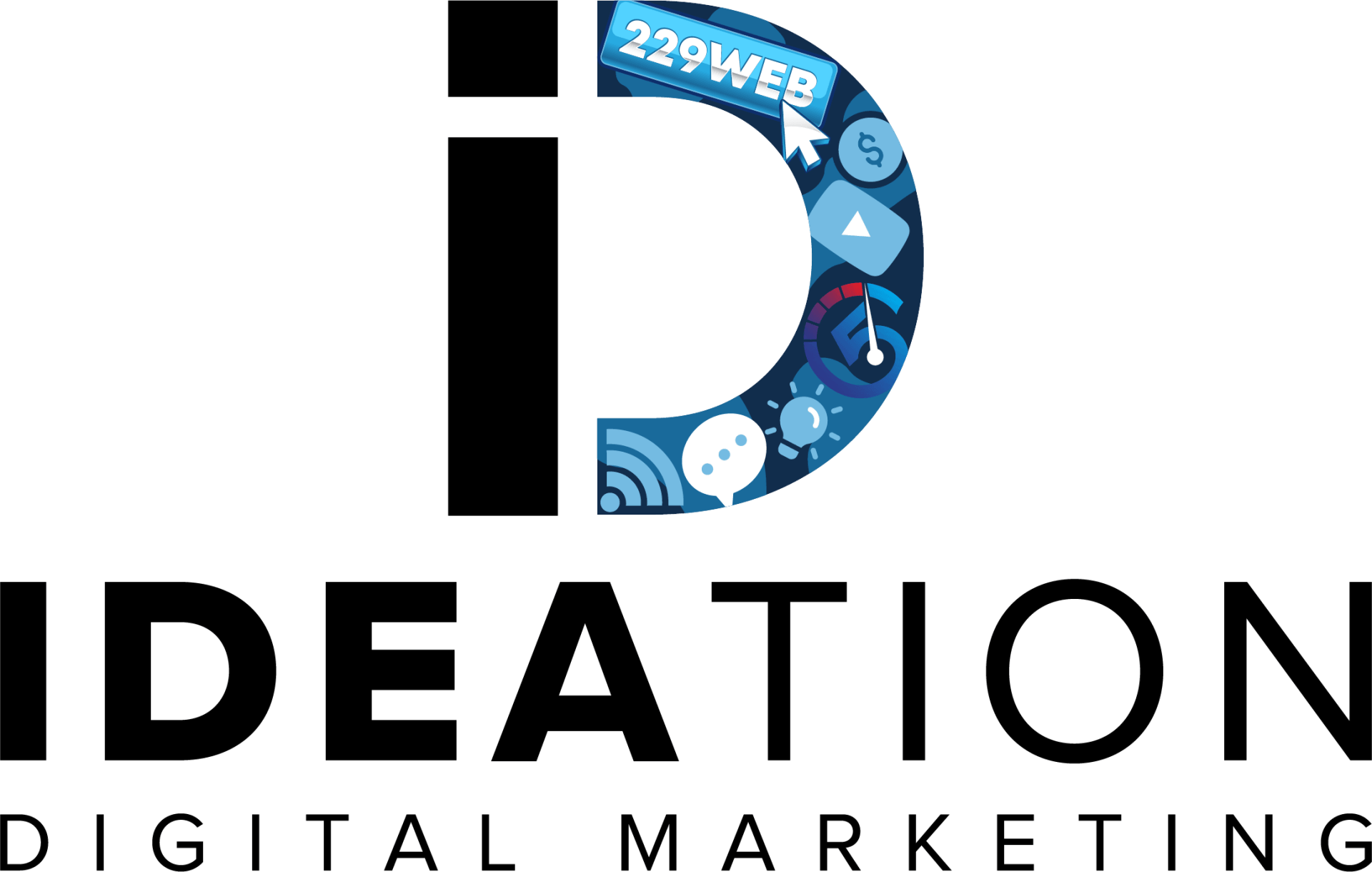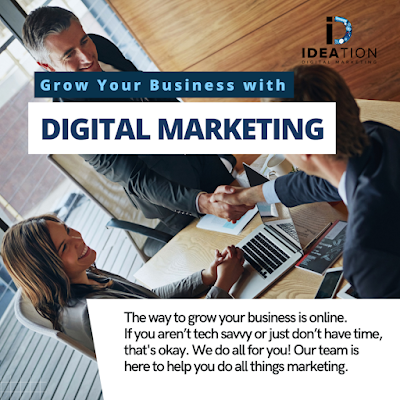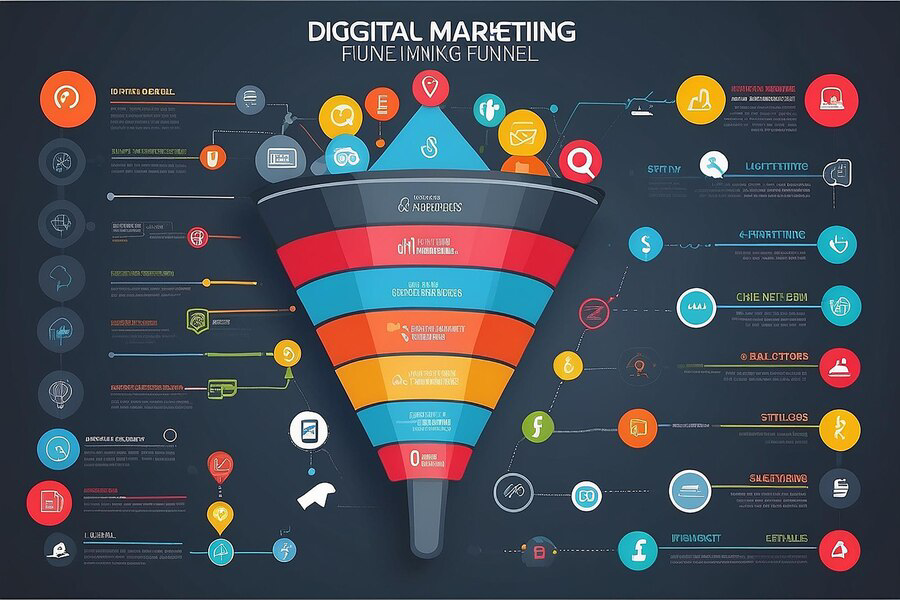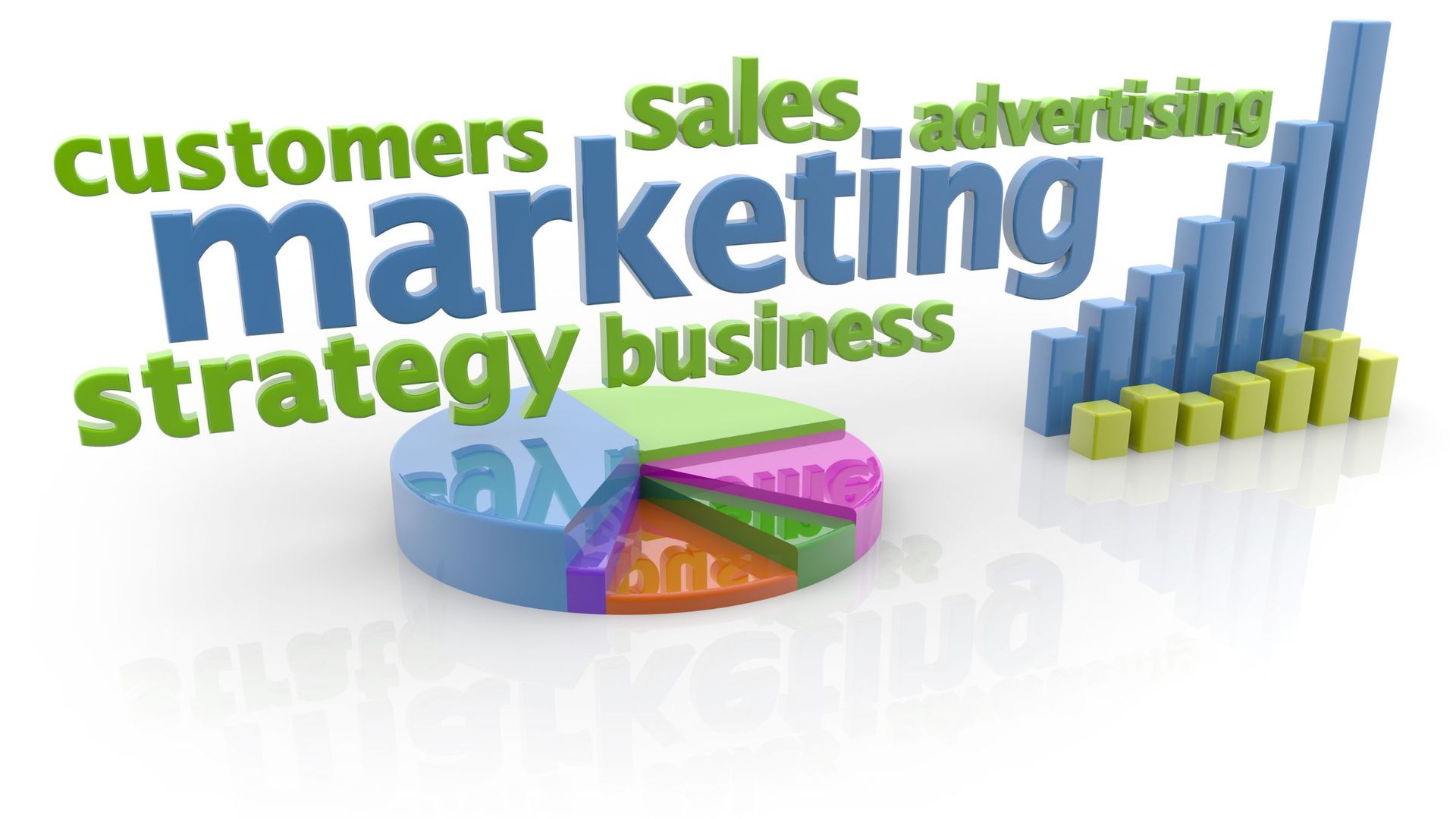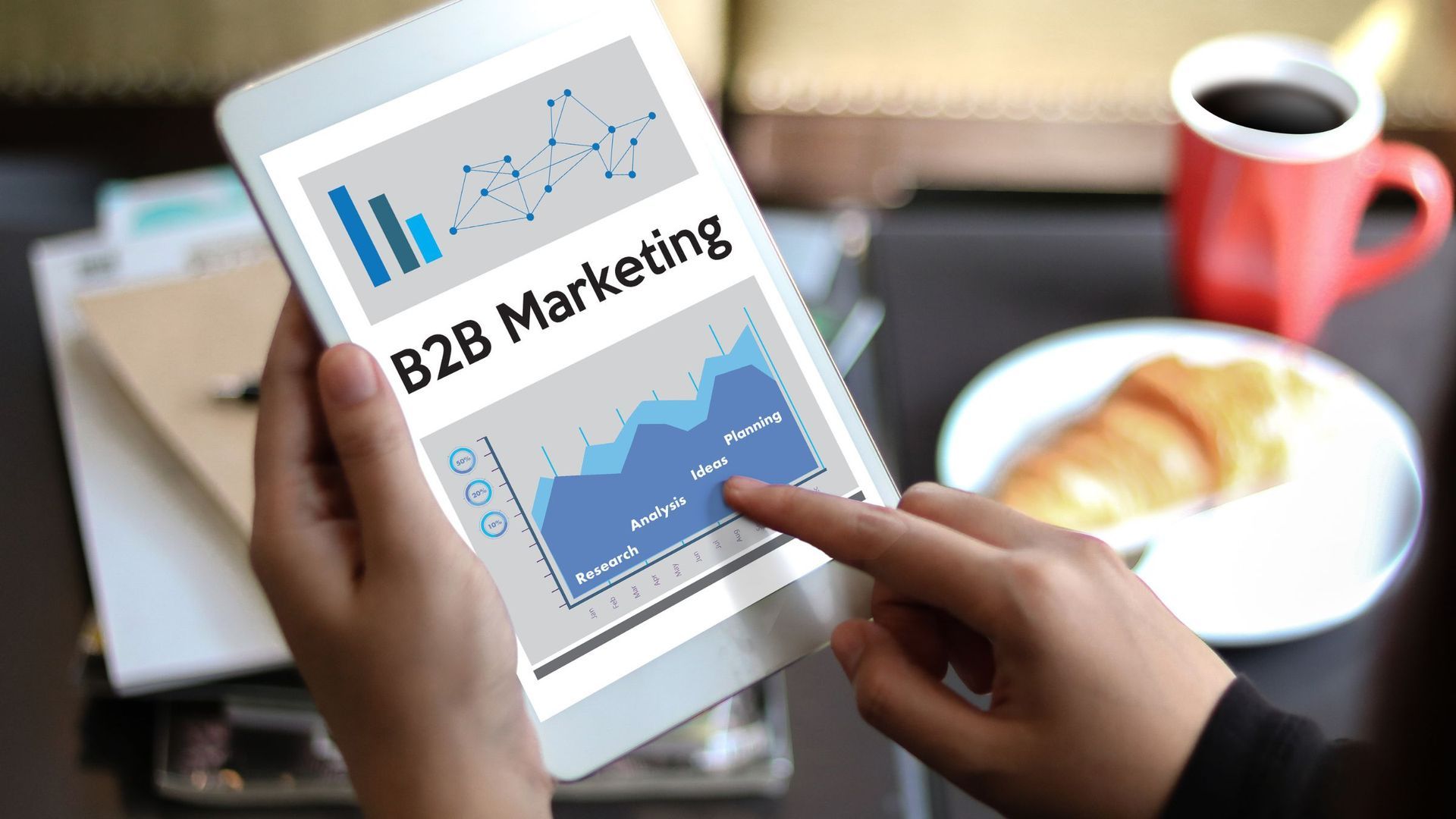Fuel Growth: Digital Marketing Funnel Strategies
In the dynamic landscape of contemporary business, where consumers are inundated with options and distractions, mastering the art of digital marketing funnel strategies is paramount for sustained growth and success. In essence, a digital marketing funnel is a systematic approach to guiding potential customers through various stages of the purchasing journey, from awareness to conversion and retention. It serves as a roadmap, illuminating the pathways that lead prospects from initial engagement to becoming loyal advocates for a brand. Crafting an effective digital marketing funnel involves a blend of creativity, data-driven insights, and technological prowess. It's about understanding the intricacies of consumer behavior, leveraging diverse digital channels, and deploying targeted messaging to nurture leads and cultivate lasting relationships. By optimizing each stage of the funnel, businesses can not only amplify their reach and engagement but also streamline their conversion processes, ultimately fueling sustained growth and cultivating a loyal customer base. In this exploration, we delve into the multifaceted realm of digital marketing funnel strategies, uncovering key principles, best practices, and innovative approaches to drive meaningful results in the digital age.
Understanding the Digital Landscape: Navigating Channels and Platforms
In today's dynamic digital landscape, businesses face a multitude of channels and platforms to navigate. From social media platforms like Facebook and Instagram to search engines like Google, understanding where your audience is and how they engage is crucial. Each channel has its own unique demographics, user behavior, and content consumption patterns. By comprehensively understanding these nuances, marketers can strategically allocate resources and tailor content to maximize impact. Moreover, staying abreast of emerging trends and technologies ensures that businesses remain agile and adaptable in their digital marketing efforts. Ultimately, a deep understanding of the digital landscape empowers businesses to effectively reach and engage their target audience.

Crafting Compelling Content: Engaging Audiences at Every Stage
Compelling
content lies at the heart of successful digital marketing strategies. From captivating blog posts and eye-catching infographics to engaging videos and interactive quizzes, content serves as the bridge between brands and their audiences. At every stage of the marketing funnel, from awareness to conversion, crafting content that resonates with your target audience is essential. This involves understanding their pain points, aspirations, and preferences, and delivering value through informative, entertaining, or inspirational content. Moreover, leveraging storytelling techniques can create emotional connections and drive engagement, fostering brand loyalty and advocacy. By consistently delivering compelling content that addresses the needs and interests of your audience, you can build meaningful relationships and drive business growth.
Optimizing Conversion Points: From Awareness to Action
Optimizing conversion points within the digital
marketing funnel is crucial for turning awareness into action. From the initial touchpoint where a prospect becomes aware of your brand to the final stage where they make a purchase or take a desired action, each step must be strategically optimized to minimize friction and maximize conversions. This involves analyzing user behavior, identifying pain points, and implementing user experience improvements to streamline the conversion process. Whether it's simplifying the checkout process, reducing form fields, or providing clear calls-to-action, every optimization contributes to a smoother and more effective conversion journey. Additionally, A/B testing and data analysis can provide valuable insights into what resonates with your audience and inform iterative improvements over time. By continuously refining and optimizing conversion points, businesses can drive higher conversion rates and achieve their growth objectives.
Leveraging Data Insights: Refining Targeting and Personalization
In the era of big data, leveraging data insights is paramount for refining targeting and personalization in digital marketing. By harnessing the power of data analytics, businesses can gain valuable insights into customer behavior, preferences, and demographics. This enables more precise audience segmentation and targeting, allowing marketers to deliver highly relevant and personalized experiences across various channels and touchpoints. Moreover, predictive analytics can anticipate future behaviors and preferences, enabling proactive engagement and personalized recommendations. By continuously collecting and analyzing data, businesses can refine their targeting strategies, optimize marketing campaigns, and enhance the overall customer experience. Ultimately, leveraging data insights empowers businesses to connect with their audience on a deeper level, drive engagement, and foster long-term customer relationships.
Maximizing Retention: Building Lasting Customer Relationships
Maximizing retention is essential for building lasting customer relationships and driving sustainable growth. In a competitive marketplace, retaining existing customers is often more cost-effective than acquiring new ones. By focusing on delivering exceptional customer experiences and providing ongoing value, businesses can foster loyalty and advocacy among their customer base. This involves proactive communication, personalized interactions, and
responsive customer support to address concerns and exceed expectations. Moreover, implementing loyalty programs and rewards initiatives can incentivize repeat purchases and encourage customer engagement. By consistently delivering value and nurturing relationships beyond the initial sale, businesses can turn satisfied customers into brand advocates who champion their products or services to others. Ultimately, maximizing retention is not only about retaining customers but also about creating brand ambassadors who fuel organic growth and contribute to long-term success.

Testing and Iteration: Continuous Improvement in the Funnel
Testing and iteration are essential components of any successful digital marketing strategy. By continuously refining and optimizing various elements of the marketing funnel, businesses can improve performance, enhance user experience, and drive better results. Through systematic testing, marketers can identify what works best for their audience and make data-driven decisions to optimize conversions at every stage of the funnel.
- Conduct A/B testing on different ad creatives, landing pages, and call-to-action buttons to identify the most effective variations.
- Analyze user behavior and engagement metrics to gain insights into pain points and areas for improvement within the funnel.
- Implement iterative changes based on test results to refine targeting, messaging, and user experience.
- Regularly review and update marketing automation workflows to ensure seamless progression through the funnel and minimize drop-offs.
- Continuously monitor key performance indicators (KPIs) to track progress and iterate on strategies for ongoing improvement.
By embracing a culture of testing and iteration, businesses can stay agile and adaptive in the ever-evolving digital landscape. Through continuous improvement efforts, marketers can optimize their marketing funnels to drive higher conversions, improve ROI, and achieve long-term success.
Scaling Success: Expanding Reach and Impact Through Strategic Growth
Scaling success involves expanding reach and impact while maintaining effectiveness and efficiency in digital marketing efforts. As businesses grow, they need to strategically allocate resources, explore new channels, and leverage innovative strategies to reach wider audiences and drive sustainable growth. By scaling success, businesses can capitalize on opportunities for expansion and maximize their impact in the marketplace.
- Identify high-performing channels and tactics to allocate resources effectively and focus on areas with the greatest potential for growth.
- Explore new market segments or geographical regions to expand reach and tap into new customer demographics.
- Invest in scalable marketing technologies and automation tools to streamline processes and improve efficiency as operations expand.
- Collaborate with strategic partners or influencers to amplify reach and leverage their existing audience for mutual benefit.
- Continuously monitor and analyze performance metrics to track scalability efforts and adjust strategies as needed to maintain momentum.
By strategically scaling success, businesses can unlock new opportunities for growth and solidify their position in the market. Through effective expansion strategies and a focus on efficiency, marketers can increase reach, impact, and ultimately, drive sustainable business growth in the digital realm.
Conclusion
Implementing effective digital marketing funnel strategies is crucial for businesses aiming to fuel growth in today's competitive landscape. By optimizing each stage of the funnel from awareness to conversion companies can attract, engage, and retain customers more efficiently. Leveraging tactics such as targeted content creation, personalized messaging, and data-driven analytics enables businesses to adapt to evolving consumer behaviors and preferences, ultimately driving better results and ROI. As the digital landscape continues to evolve, staying ahead of the curve with innovative funnel strategies will be essential for businesses looking to thrive in the online marketplace.
For further inquiries or assistance in crafting and implementing digital marketing funnel strategies tailored to your business goals, feel free to reach out to Ideation Digital Marketing. Located in Charleston, WV, our team of experts is dedicated to helping businesses unlock their full potential through strategic and impactful digital marketing initiatives. Contact us at (304) 814-2445 to schedule a consultation and take the next step towards achieving your growth objectives.
